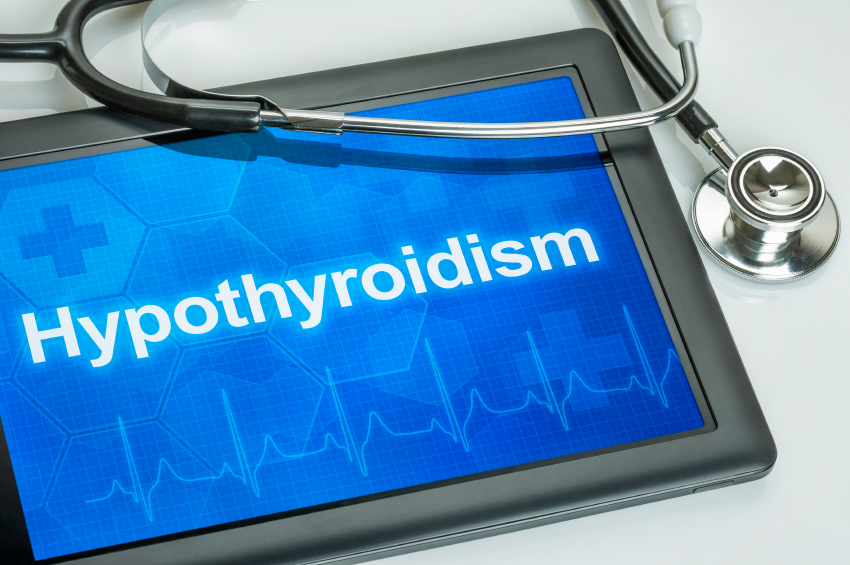February 21, 2017
[vc_row][vc_column][vc_column_text]
Whatever the case may be, you’re not only dealing unnecessarily with the symptoms of hypothyroidism, you may also be doing your heart a huge disservice. If heart disease runs in your family, consider another factor that is being passed down through the family tree: hypothyroidism. I know what you’re thinking: no one ever mentions that heart disease and hypothyroidism are related.
Here are two ways hypothyroidism leads to heart disease:
1. Hypothyroidism causes an abnormal accumulation of a glue-like substance, called mucin, in your connective tissues which causes swelling. This can spread to your heart. While mucin is a normal part of your immune system and present in your tissues, as tissues become engorged with excess mucin, heart function slows, leading to a weak and wounded heart that is unable to pump blood efficiently. This is also known as congestive heart failure. It also can cause atrial fibrillation, palpitations, and an increase or decrease in heart rate. It has been documented that treatment of an enlarged heart using natural thyroid supplementation reduces the tissues to normal size, however, if the treatment is stopped then mucin again increases rapidly.
2. Hypothyroidism causes inflammation that damages the coronary arteries. It is well documented in medical literature that coronary artery disease begins with an inflammatory process that damages the coronary arteries.
The Hypothyroidism-Heart Disease Connection
Dr. Broda Barnes’ extensive research clearly reveals the association between hypothyroidism and heart disease. He noticed that his patients who were being treated for hypothyroidism had a remarkably lower rate of heart attacks. This led Dr. Barnes to conduct a 20 year study of the relationship between supplemental thyroid hormone and a reduced risk of heart attacks. His study results represent a decreased heart attack death rate of 95 percent in patients who received natural thyroid hormone – a truly amazing finding.
So, could this be you? Is your heart at risk from untreated hypothyroidism? As always, the first place to begin is with your symptoms. The classic symptoms of hypothyroidism are as follows:[/vc_column_text][/vc_column][/vc_row][vc_row][vc_column width=”1/2″][vc_column_text]Loss of energy (malaise/fatigue)
Difficulty losing weight
Weight gain
Fluid retention
Enlarged tongue with teeth indentations
Cold extremities and cold sensitivity
Cold intolerance
Difficulty concentrating and short term memory loss
Decreased mental sharpness, “brain fog”
Hair loss
Loss of hair on the outer edge of the eyebrows
Dry skin
Skin pallor, pastiness and puffiness
Brittle fingernails with ridging
Low blood pressure
Low basal body temperature
Slow pulse rate[/vc_column_text][/vc_column][vc_column width=”1/2″][vc_column_text]Elevated cholesterol and triglycerides
Depression or mood swings
Hoarseness
Constipation
Muscle pain and cramps
Joint pain
Tiredness after a full night’s sleep
Recurrent and chronic infections
Menstrual irregularities
Headaches
Decreased sweating
Enlarged thyroid gland
Infertility
Loss of libido
Allergic disorders
Slow speech
Tingling and/or numbness in extremities[/vc_column_text][/vc_column][/vc_row][vc_row][vc_column][vc_column_text]If you’re living with several of these symptoms of hypothyroidism, not only has your quality of life declined, but you could also be unnecessarily endangering your heart, as well. Take action today to protect your heart.
Related Content
4 Ways to Diagnose Hypothyroidism – What Your Doctor Doesn’t Know
The Best Treatment for Hypothyroidism
Diagnosing Hypothyroidism: The Blood Test Road Block[/vc_column_text][/vc_column][/vc_row]
"*" indicates required fields
Since 1989, Hotze Health & Wellness Center has helped over 33,000 patients get their lives back using bioidentical hormones that restore hormones to optimal levels, strengthen immune systems, and increase energy levels. Our treatment regimen addresses the root cause of hypothyroidism, adrenal fatigue, menopause, perimenopause, low testosterone, allergies, and candida.
Led by best-selling author, radio host and leading natural health expert, Steven F. Hotze, M.D., our medical team has over 100 years’ combined medical experience backed by a staff of nearly 100 caring professionals who provide an environment of hope and extraordinary hospitality for each of our patients, who we call our guests. It is our deepest desire to help you obtain and maintain health and wellness naturally so that you may enjoy a better quality of life, pure and simple.
Do you want to live a healthy, happy, purpose-driven life? Do you want to restore your health so that your loss of energy, weight gain, joint pain, depression and lack of drive or motivation won’t hold you back from achieving your personal and professional goals?
Dr. Steven Hotze wants that for you, too. In fact, in his powerful and passionate video entitled, “What I Believe”, Dr. Hotze shares how his Christian worldview and pivotal experiences have ignited a deep desire to offer the message of hope and optimal health to all who need to hear it.









At Hotze Health & Wellness Center, our doctors are changing the way women and men are treated through the use of bioidentical hormones. Our natural treatments have helped over 33,000 individuals with hypothyroidism, adrenal fatigue, menopause, perimenopause, low testosterone, allergies, candida, detoxification and nutritional deficiencies.
Meet our doctors"After a traumatic accident, I was told that I was in early menopause in my 20s and could never have children, however after restoring my hormones, I am now expecting baby #7!”
Leave a Reply